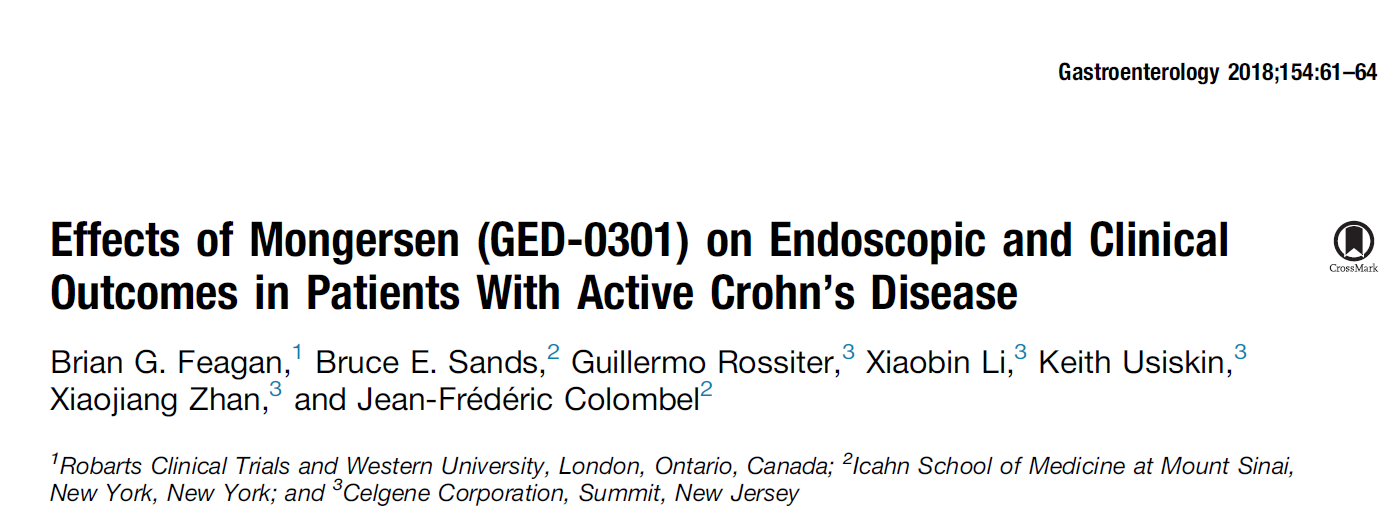
Abstract
GED-0301 is an antisense oligodeoxynucleotide with a sequence complementary to the Smad7 mRNA transcript. Smad7 is a negative regulator of transforming growth factor-β, which is increased in the intestinal mucosa of patients with active Crohn’s disease (CD). We randomly assigned 63 CD patients to 4-, 8-, or 12-week treatment groups receiving oral GED-0301 (160 mg/day). The primary objective was to determine GED-0301’s effect on endoscopic CD measures; secondary objectives included effects on clinical activity. Endoscopic improvement was observed in 37% of participants with evaluable endoscopy results at week 12. At week 12, 32% (4 weeks), 35% (8 weeks), and 48% (12 weeks) of patients receiving GED-0301 were in remission (CD activity index score <150); corresponding reductions from baseline in mean CD activity index scores were −124, −112, and −133 points. No new safety signals were observed. These findings support a GED-0301 benefit in active CD.
- EDITOR NOTES
Background and Context
GED-0301 is an antisense oligodeoxynucleotide with a sequence complementary to the Smad7 mRNA transcript. Smad7 is a negative regulator of transforming growth factor-β which is increased in the intestinal mucosa of patients with active Crohn’s disease (CD).
New Findings
Endoscopic improvement was observed in 37% of CD participants randomly assigned to 4-, 8-, or 12-week treatment groups receiving oral GED-0301 (160 mg/day). At week 12, 32% (4 weeks), 35% (8 weeks), and 48% (12 weeks) of patients receiving GED-0301 were in remission (CD activity index score <150). No new safety signals were observed.
Limitations
A study period > 12 weeks may be needed to determine maximum benefit of GED-0301.
Impact
These findings are consistent with a GED-0301 benefit in active CD and support continued development of this agent.
